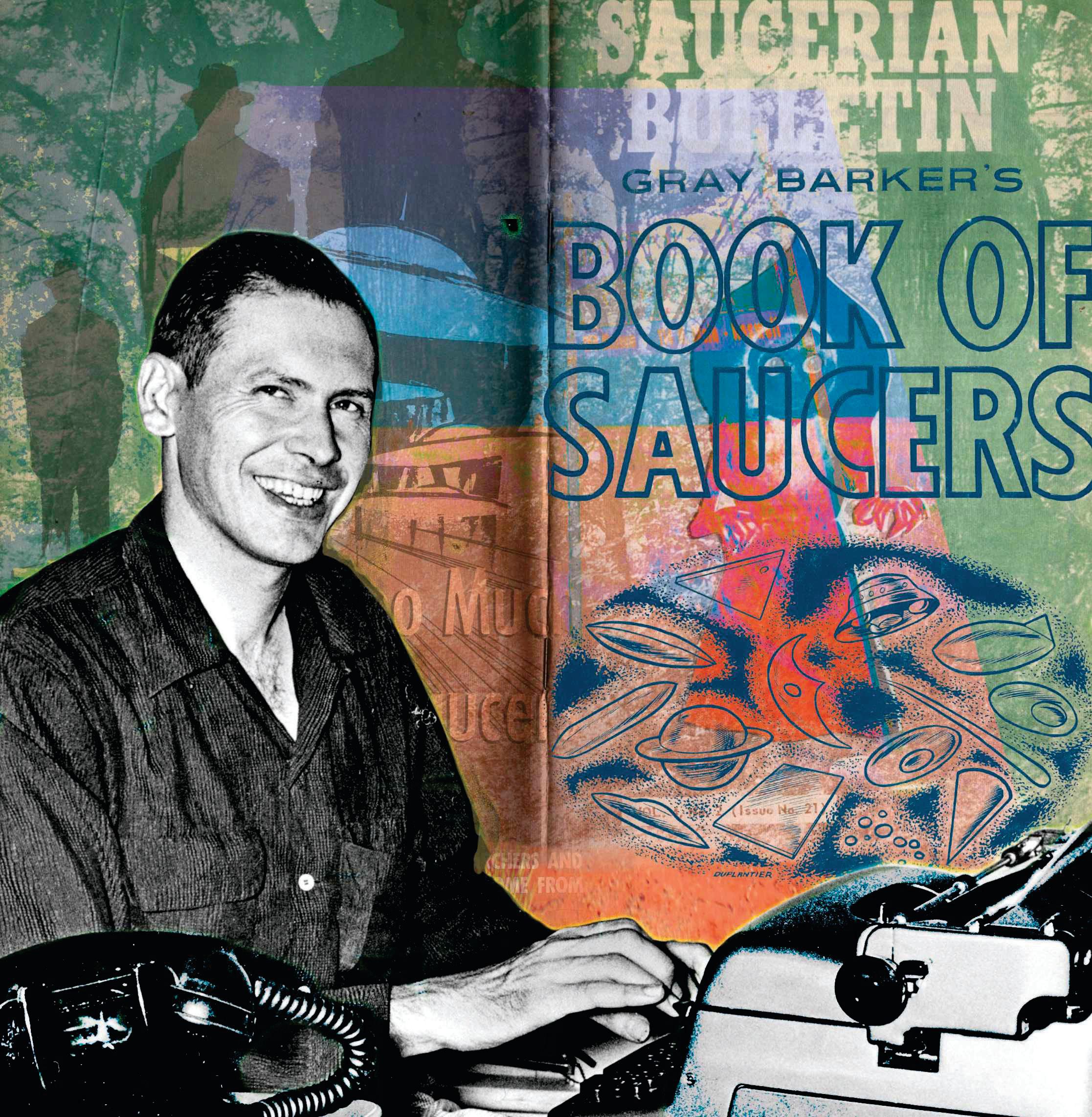Try GOLD - Free
Gray Barker UFO conspiracy theorist
BBC History UK
|October 2025
Tales of alien sightings and government cover-ups have captured American imaginations for decades - but few with such global appeal as the Men in Black.DAVID CLARKE introduces the ufologist who popularised these shadowy space-age legends

One night in 1953, three mysterious men sporting black suits reportedly arrived uninvited at the home of Albert K Bender in Bridgeport, Connecticut. The menacing trio, who reportedly identified themselves as agents of the US government, threatened Bender with prison if he told anyone about a secret he had discovered – information relating to the source of the flying saucer mystery. They scared him so badly that he was physically sick for three days.
Bender was no mere disinterested civilian. An obsessive ufologist, he was the founder of the International Flying Saucer Bureau (IFSB), the world's first civilian UFO investigation club. Shortly after that ominous visit, and on the orders of those 'secret agents', he shut down the IFSB.
At least one person was both disappointed and intrigued by this development: Gray Barker, only recently recruited as the IFSB's chief investigator and a contributor to its magazine, Space Review.
"He was 6ft 4ins tall, with a gentle southern accent and a sly sense of humour," recalled his friend John Keel, a fellow investigator of UFOs and monster stories. "And it can truly be said that he knew too much about flying saucers."
It was Barker's exploration of the 'men in black' (latterly abbreviated as MIB) that had a long-lasting and global impact on ufology and wider popular culture.
Born in West Virginia in 1925, in his youth Barker worked in the theatre industry, then began publishing, writing and editing stories about UFOs, monsters and the paranormal. He graduated from Glenville State College in 1947 – the year in which the phrase 'flying saucers' was coined to describe a formation of strange batwing-shaped objects reported by a private pilot, Kenneth Arnold, in Washington state. Arnold's sighting was quickly followed by the Roswell incident, when wreckage of a flying object was recovered from the desert in New Mexico.
This story is from the October 2025 edition of BBC History UK.
Subscribe to Magzter GOLD to access thousands of curated premium stories, and 10,000+ magazines and newspapers.
Already a subscriber? Sign In
MORE STORIES FROM BBC History UK

BBC History UK
On the skids
Richard Rodgers and Oscar Hammerstein II's smash musical Oklahoma! opened on Broadway on 31 March 1943.
1 min
Christmas 2025

BBC History UK
Small pleasures
Memory is imperfect, but what if you could get a professional model maker to recreate a moment from the past?
1 min
Christmas 2025

BBC History UK
Bath in five places
In the Georgian era, Bath became arguably Britain's most fashionable destination. KIRSTEN ELLIOTT promenades five historic highlights
3 mins
Christmas 2025

BBC History UK
End times
Why do civilisations that dominated their epoch fail? In an era of autocracy, climate change, the rise of Al and a first-hand understanding of how deadly pandemics can be, it's a question that seems pertinent.
1 min
Christmas 2025

BBC History UK
What are the origins of the Yule Lads?
To learn about the Jólasveinar (Yule Lads), we must start with their mother, the terrifying ogress Grýla. Her name appeared in Icelandic texts as early as the 13th century, although it wasn’t until later that those 13 mischievous lads became associated with her. Folk tales and poems tell how she descends from the mountains with an empty sack to stuff full of children. Grýla owns the monstrous Jólaköttur (Yule Cat), which roams the countryside on Christmas Eve, searching for children to gobble up if they're not wearing new clothes.
1 mins
Christmas 2025

BBC History UK
Santa Claus v Father Christmas
The true identity of the white-bearded, red-robed figure who fills children's stockings at Christmas has long been debated. Thomas Ruys Smith sizes up the merry contenders
8 mins
Christmas 2025

BBC History UK
Frontier friction
Set in Washington Territory in 1854, The Abandons is a Western that's unusual for having two matriarchs, women whose lives become entangled, at its centre.
1 min
Christmas 2025

BBC History UK
The Last Days of Pompeii: The Immersive Experience
Delve into the culture of daily Roman life, witness the momentous eruption of Mount Vesuvius, and follow its fallout in Immerse LDN's new exhibition. In a blend of cutting-edge technology and vivid storytelling, this exhibition launches visitors into Pompeii's rich history with recreations of the ancient city's beautiful pre-eruption landscape, a 360-degree virtual reality Roman amphitheatre experience, and a digital metaverse recreating Pompeii's 'Villa of Mysteries'.
1 min
Christmas 2025

BBC History UK
Elizabeth Marsh The corsair's captive
Taken hostage by a Barbary ship's captain in the 18th century, a young Englishwoman found herself fighting for her freedom in Marrakech. ADAM NICHOLS introduces a brave captive who later wrote a book about her dramatic experiences
6 mins
Christmas 2025

BBC History UK
29 DECEMBER 1170: Thomas Becket is murdered in Canterbury
Knights loyal to Henry II rid him of the “low-born cleric”
2 mins
Christmas 2025
Listen
Translate
Change font size
